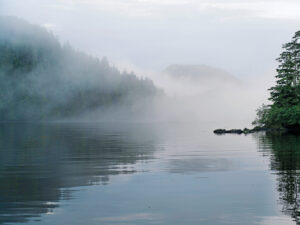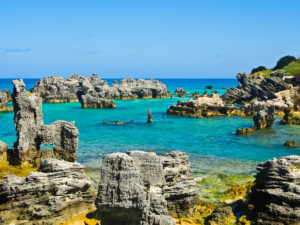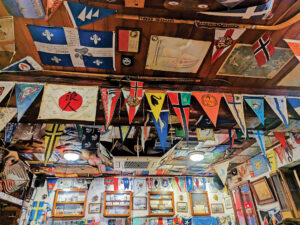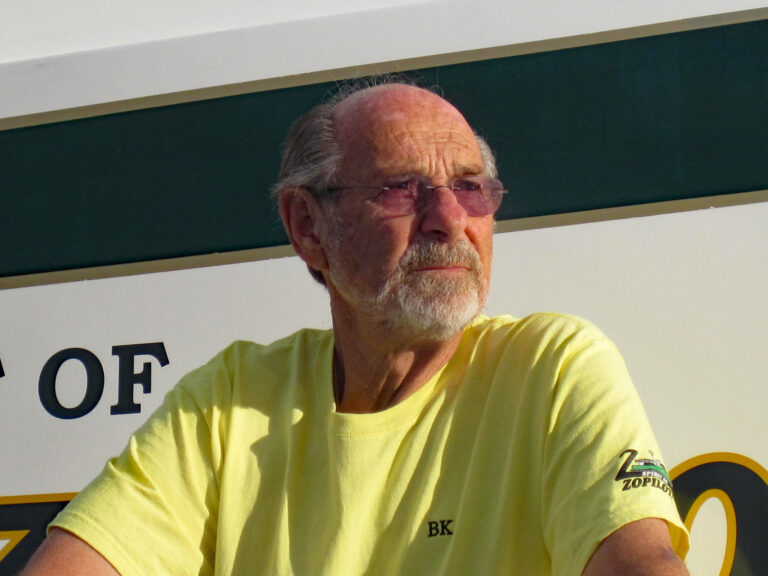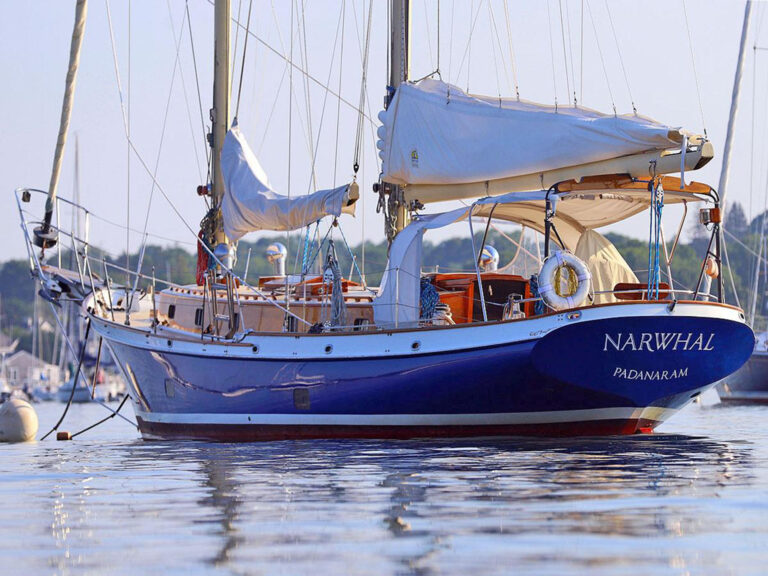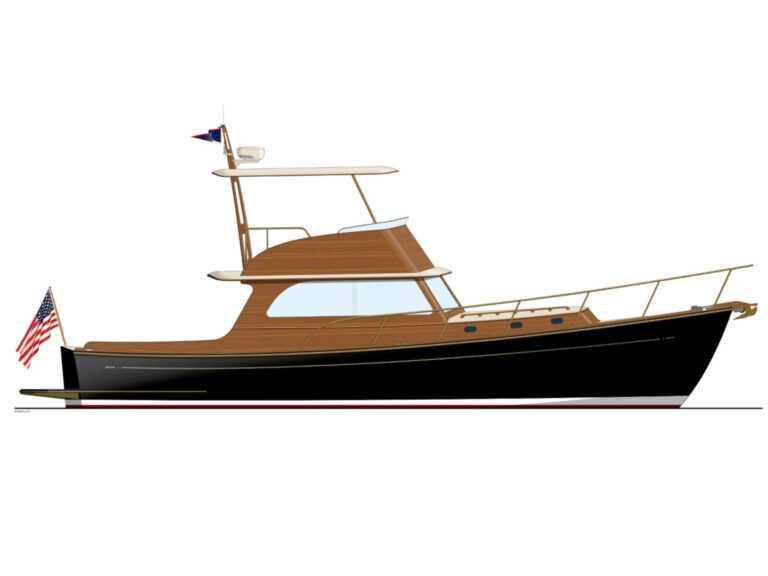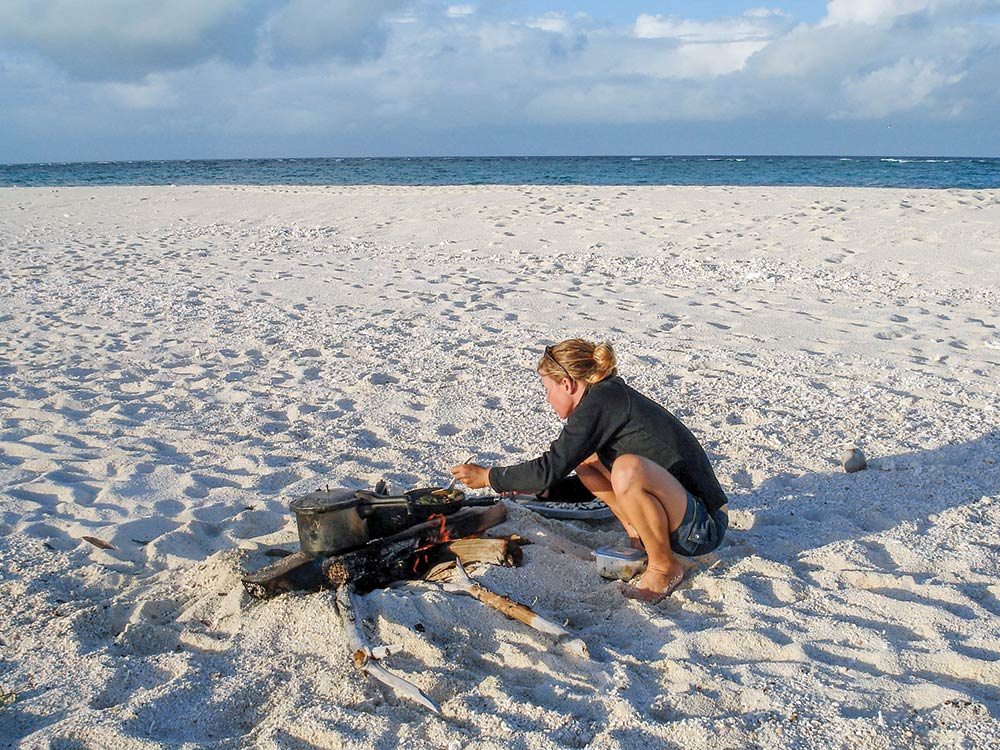
A hush consumed the entire maneaba, a Kiribati meeting hut. My lovely wife, Heidi, and I sat crisscross on the dirt floor, fidgeting awkwardly, keenly aware that all the villagers were staring at us in disapproval. A few moments earlier, Heidi and I had been chatting enthusiastically about our previous day’s fishing catch, and how we had enjoyed cooking it up over a beach fire in the nearby cove. A villager had asked, “Where did you get your wood?” “From the beach. There were plenty of sticks,” I responded. And now here we were, in an awkward silence, our sins about to be conveyed to us by one of the elders. What had I done this time? I admit, I had a particular aptitude for faux pas when it came to Kiribati culture. A clear example occurred the first time we were invited to the island’s Catholic church service. The preacher finished his sermon and invited the congregation to lie down for a siesta. “Wow, Heid, I’m diggin’ this church’s style,” I said, as I quickly adjusted my position from cross-legged on the floor to flat on my back, hands behind my head, toes in the air like I just don’t … “Uhhhhhhhh!” “Ahhhhhh!”
People were gasping. People were talking rapidly in Gilbertese, the Kiribati language. They were pointing fingers at me. They were pointing fingers at my feet — the bottoms of my bare feet. The preacher looked at me sternly and said, “Never point the bottom of your foot at a person.” I looked at my feet, the soles of which were pointed directly where? Directly at him! “Oh! Oh! I’m so, so, sorry!”
Does “sorry” cut it when you’ve just done the equivalent of flipping the preacher the bird, in church? Luckily, the preacher was the forgiving sort, and he accepted my profuse apologies, recognizing that I was extraordinarily ignorant, having sailed in from another planet.
In my defense, the 33 islands spread out across the Pacific that make up the nation of Kiribati — and the culture of the people that inhabit them — just never found their way into my formal Pennsylvania education. Before leaving on the 2,000-mile sail from Hawaii to Kanton, Kiribati, aboard our engineless Pacific Seacraft 25, Tiny Bubbles, I had only met two people — hardcore cruisers through and through — who had been to Kiribati. They had confirmed that, “Yes, it does exist,” and “Yes, it does hold the Holy Grail.” So it was off to the Kiribati, pronounced “ki-ri-bas.” We told friends and family about our plans, and each of them, though highly intelligent and reasonably well educated, would get a perplexed look before asking, “Kiri-ba-what?”
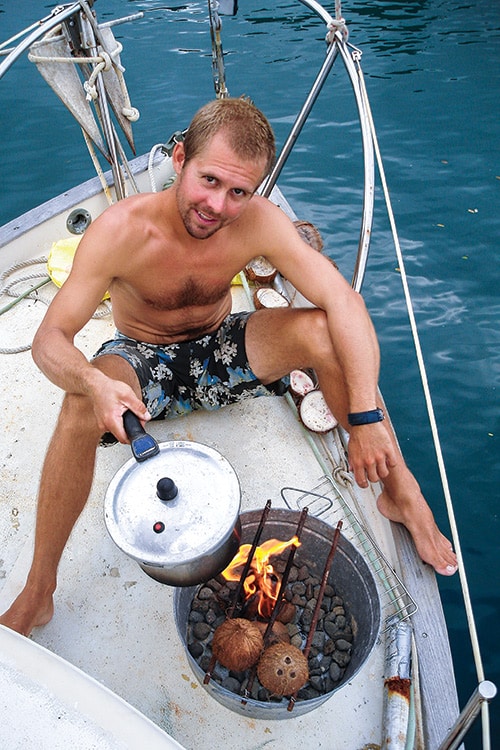
Luck was with us on the voyage, aside from a nasty “tropical wave” that made us one with the ditch bag. It was a week of mast-slapping, insanity-inducing, marriage- testing wallowing in the doldrums, capped off by a missed tack that was abruptly followed by a crash landing/grounding at the entrance to Kanton’s lagoon. I’d say things went about as well as could have been expected for my wife and me on our honeymoon voyage.
So here we were on Kanton, with its 40 inhabitants, of which about half were children. It is the only inhabited island of the eight atolls that make up Kiribati’s Phoenix Islands group. The residents there work for the government, which mostly consists of being a human presence, surviving on a coral atoll 1,100 miles from the mother island of Tarawa. They have no stores, no telephones (everything is via SSB radio) and an inconsistent supply ship. During the three months we were there, it never arrived, making it about half a year late. What Kanton lacked in Western convenience (everything), it made up for in that gritty, one-with-nature, live-by-the-spear-or-die-of-starvation experience that we were drawn to as unconventional newlyweds.
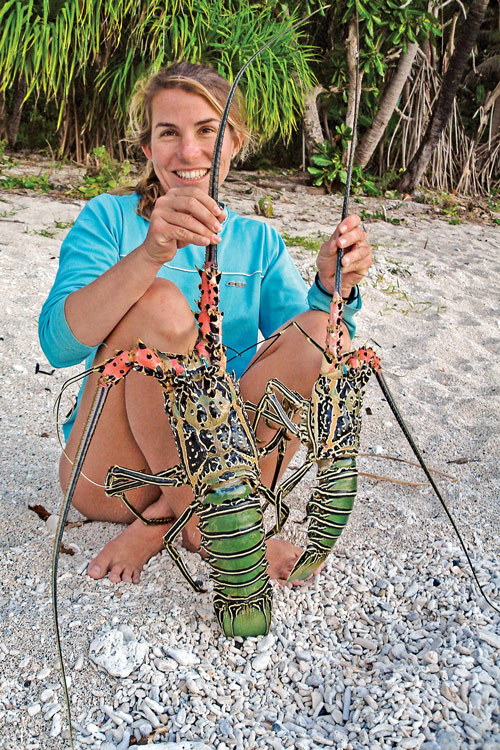
Occasionally, we got ill, very ill. It was difficult to practice Western hygiene in a world without soap or running water, so the phrase “Oh, you’ve been eating sweets again” became all too meaningful. It was a quote borrowed from our favorite reference book, Where There Is No Doctor, by David Werner. After spending seven months in Kiribati, the pages were beginning to fall out. There’s no beating around the bush in this plain-English text, and Heidi and I could relate with the pages dedicated to intestinal distress. Our favorite quote went something like this: “If Junior is sick, his mother may say it’s because he’s been eating sweets. It’s not. It’s because he has been eating s—!” Cross contamination is a real thing.
The oldest member in the maneaba was ready to speak now, on matters concerning our previous day’s cookout on the beach. “You must never do that again!” We nodded gravely, though still oblivious to our crime. “Those sticks that you pick up. Those sticks are, how do you say? Those sticks are Kiribati toilet paper.” I could sense my tummy rumbling.
“Oh, Josh, I think we’ve been eating sweets again!” Heidi chuckled.
Heidi and Josh Holloway are currently cruising the U.S. East Coast with their three young crewmates aboard Tiny Bubbles II.

